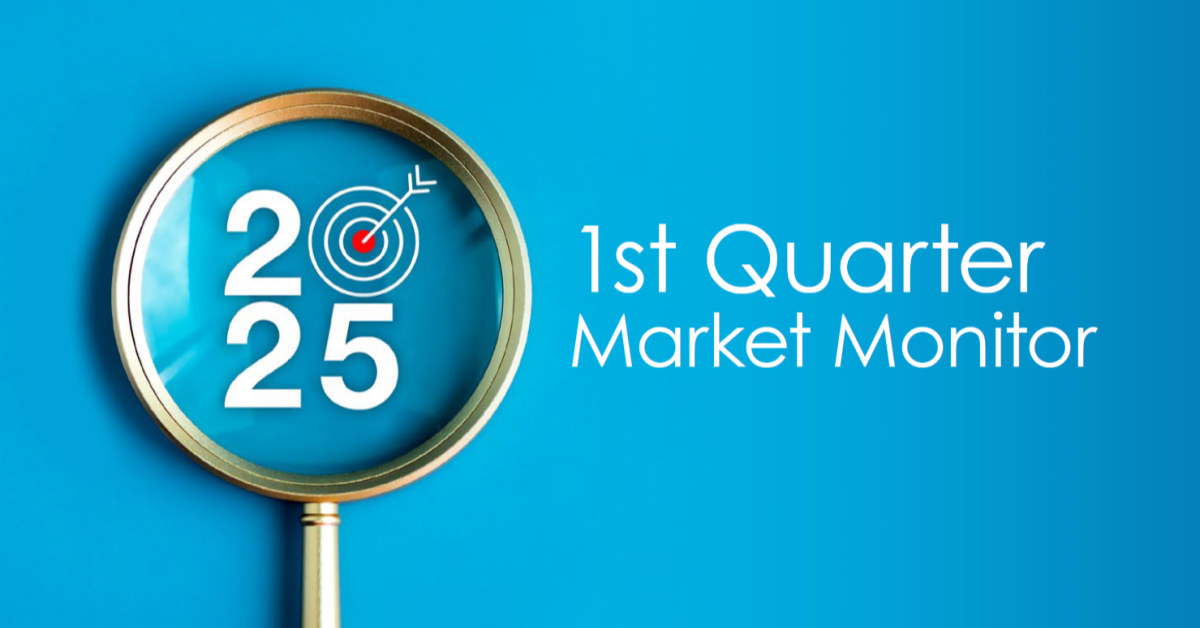The word “narrative” has come front-and-center as we continue to live in the shadows of the COVID-19 pandemic.
People often take sides based on political leanings, and their beliefs are reinforced by the media they follow. Conversations are peppered with per-capita death rates, the number of new cases, uncertainly about the world of work, bankruptcy and evictions, and government stimulus efforts. Most of all, everyone is forced to distance themselves from the life they knew and loved.

Given that backdrop, it’s easy to see how anxiety and discouragement can set in. So, nothing can be more valuable than a reminder that the pandemic has some upsides — and that using them to one’s advantage can improve outlooks tremendously.
Historically low interest rates: Making them pay off
The Fed’s fund rates were already low in early 2020, skirting around 1.5–1.75%. On March 15, rates were lowered to 0.00–0.25% after the economy went into momentary free-fall upon the national shutdown (there was even talk of negative interest rates). Taking the cost of money so low was intended to help companies borrow money as they weathered the pandemic.
In the experience of HCR Wealth Advisors, while the low interest rates may not be great news for people saving money in money market accounts and CDs, low interest rates are excellent for those on the borrower side. Here are two situations where that can be advantageous:
Refinancing mortgages — Mid-August 2020 saw average interest rates on 30-year, fixed-rate mortgages at 3.005%. The idea of locking in such historically low rates for the next 30 years, when the cost of money will undoubtedly hit far higher peaks, is appealing.
With the near-term financial uncertainty, being able to shrink monthly payments and help with cash flow can be reassuring. The decision should be made based on two factors: (1) how much lower the new interest rate will be compared with the existing one, and (2) if the refinancing costs are too high to make the transaction attractive.
HCR Wealth Advisors understands that starting a new 30-year cycle may not be ideal if equity was already being built in the property. The alternative could be to select a short term for the mortgage, such as 15 years. Even if the monthly payment is slightly higher, contribution to equity will build much faster, and the overall interest cost — something too few people consider — will be reduced. (Average 15-year rates in mid-August 2020 were 2.575%.)
Lowering credit card APRs — Credit card APRs never go down anywhere near where Fed Funds rates are, but the lower cost of money to banks and lenders will lower the APRs they offer somewhat, as they compete for their more creditworthy customers. Anyone holding credit card debt will benefit from a lower APR. It means that a greater portion of any payment made goes towards paying off the debt, and not the interest. In turn, the debt will be paid off faster.
With all the financial stress coronavirus has placed on customers — and the rising rate of late credit card payments and defaults — HCR Wealth Advisors sees banks and lenders likely being amenable to a phone call asking for a lower APR from a customer who is not likely to land in arrears.
A few phone calls are worthwhile even if end-of-month balances are typically paid off. An unexpected expenditure may someday require carrying the debt over a few months, and the lower APR will already be in place.
Lower spending: Turning it into an asset
Many of HCR Wealth Advisors’ clients have been surprised by how much money was left at the end of the month while they were in lockdown. Even now, as the economy is partially open, it’s harder to spend money because the full confidence of the buying public isn’t back yet. Restaurant and bar visits — as well as instant-gratification purchases while walking past store windows — are way down.
Repurposing spare cash — So, what are the smart ways of repurposing that spare cash?
Some are paying down debt based on their own strategies. Others are using low- or no-cost apps that help allocate available cash among debts as effectively as possible. (Google “debt management app” for the best options.)
Others are building emergency funds. Whether it’s an economic hardshiprelated to coronavirus or just everyday life, having readily available funds set aside is protection against having to go into debt in the future.
HCR Wealth Advisors is seeing those with a longer-term perspective adding to retirement savings, either contributing to existing retirement plans or using the excess cash to get started. Social Security will play some role in almost everyone’s retirement, but every bit saved and invested will improve one’s retirement prospects.
Once coronavirus is under control (however and whenever that happens) and life returns to some version of normal, certain people will recognize the wisdom of continuing their new spending patterns. The comfort of having multiple safety nets can be motivating. Paying down debt, building emergency funds, and adding to retirement savings are just such safety nets.
More free time: Making the most of it
“Life Before coronavirus” was marked by how busy everyone was and how little time they had to do the things they thought about late at night before falling asleep. “I really need to …” “Someday, I have to …” “If I had the time, I’d like to …”
Not everyone has spare time because they are working from home or not working at all. Homeschooling, financial stress, and frustration may be all-consuming. But, for those who do have time, it’s an opportunity to do the things their hectic earlier lives didn’t let them do. As for those who are so distracted by homeschooling, financial stress, and frustration, “making” some free time may be the key to getting past those distractions.
Here are a few of HCR Wealth Advisors’ ideas:
Planning for success — It may be easier to spend money without a plan, but it certainly isn’t stress-reducing. Coronavirus has caused everyone to be more conscious of costs and priorities. Anyone who already has a spending plan — some people call them “budgets” — will benefit from revising theirs. For others, it may be time to take greater control over their inflows and outflows of funds.
Planning doesn’t need to be difficult or complicated. A simple spreadsheet or piece of paper — and a list of necessary and voluntary expenditures — is a great start. And the internet is rich with examples to follow.
Lowering insurance costs — Consumers have the impression that insurance companies sell a policy at one price, then proceed to raise premiums year-by-year until the policy no longer feels like a deal. But changing policies never got to the top of ‘to do’ lists before because it seemed like hard work.
Checking the cost of insurance — like home and car insurance — used to mean countless phone calls to insurance companies or brokers. Quotes rarely compared “apples-to-apples,” so making a final decision was complex.
But technology has come to the rescue. Today there are technology companies — some of which are advertised heavily on television and the internet — that gather all the information and provide it for comparing offerings. The buying process is also easy, making this a good use of some free time.
Putting one’s house (or estate) in order — Coronavirus shined a unique spotlight on human vulnerability. Death statistics have been posted on television screens daily for over five months. And, more than likely, that has led many people to question whether or not they would be prepared if they became one of the statistics.
Although it’s a topic most people prefer to ignore, the HCR Wealth Advisors team knows that end-of-life planning is reassuring, especially for families with children or other dependents. In addition to giving thought to life insurance, being prepared means creating wills so that assets and property are distributed according to one’s wishes. It also means creating living wills and other medical documents that reflect one’s preferences, and powers of attorney giving a trusted person the power to carry out those wishes.
Working with estate attorneys may be the ideal way to prepare, but for many, the task can be made far more straightforward — and in keeping with their assets and lifestyle. Online services can help people prepare their own documents with whatever amount of assistance makes sense. The key is just to do it.
Covid-proofing retirement plans — For those who have retirement plansin place — whether created with the help of a financial advisor or not — it may be time to revisit the plans to see if the financial and economic disruption of coronavirus calls for any adjustments. HCR Wealth Advisors has fielded many such requests from clients. And for those who have not set up a retirement plan, coronavirus may have highlighted the need for longer-term planning than a 401(k) plan at work and an IRA.
Wherever the assistance comes from, HCR Wealth Advisors witnesses daily how retirement planning helps people maximize the assets they have and identify a savings plan that allows them to reach their retirement goals.
The coronavirus pandemic has caused incalculable damage to many people. While it may seem hard to look for silver linings, several do exist. And they will improve the lives of anyone who chooses to act on one — as large or small as it may be.
About HCR Wealth Advisors — HCR Wealth Advisors was founded in Los Angeles, CA, in 1988 to provide financial support to its clients, one at a time. Its team of established financial veterans is guided by their commitment to protect their clients’ self-interest and grow their wealth, regardless of the economic environment.
Originally published at https://www.letsbegamechangers.com on August 20, 2020.
*This article is for informational purposes only and should not be considered investment advice.



